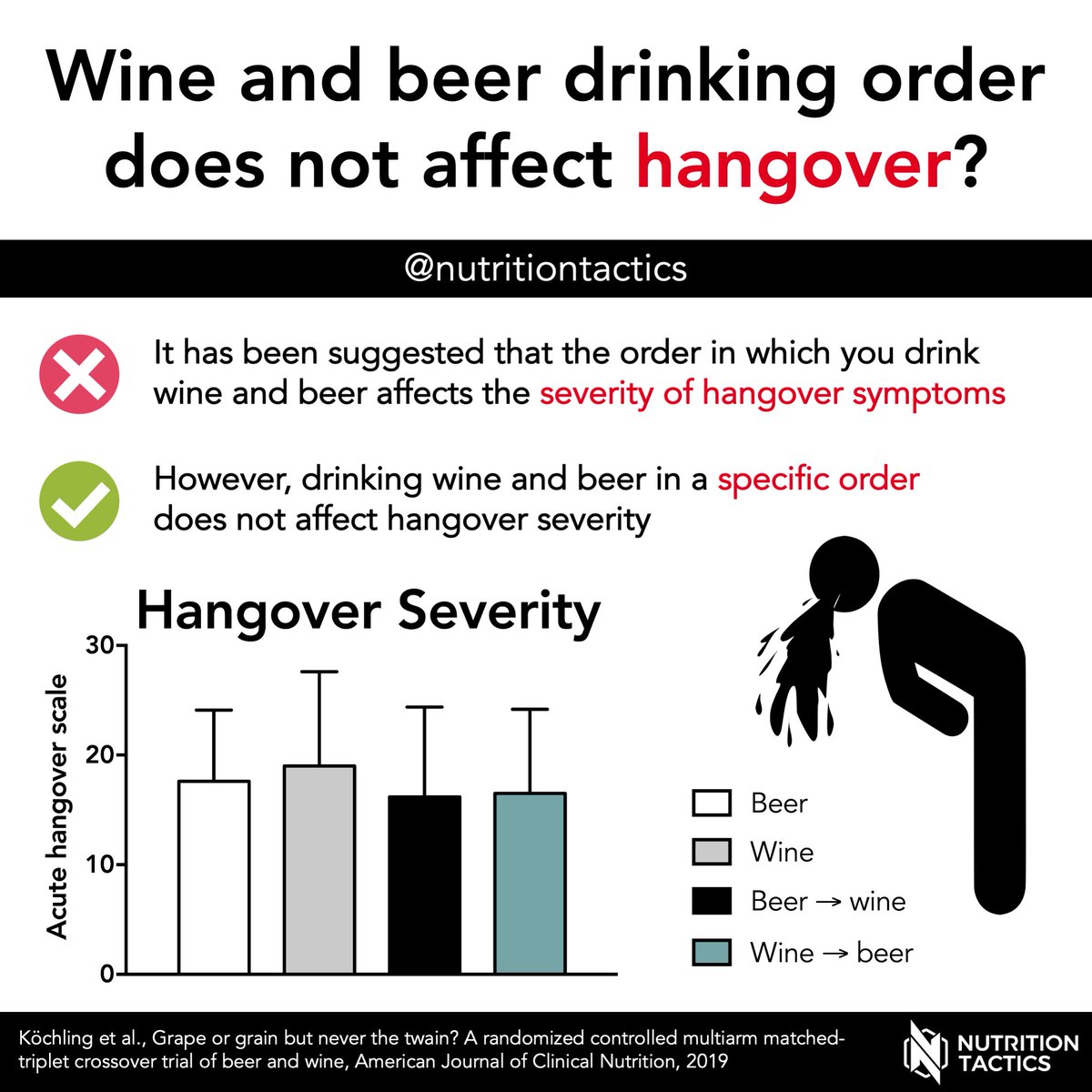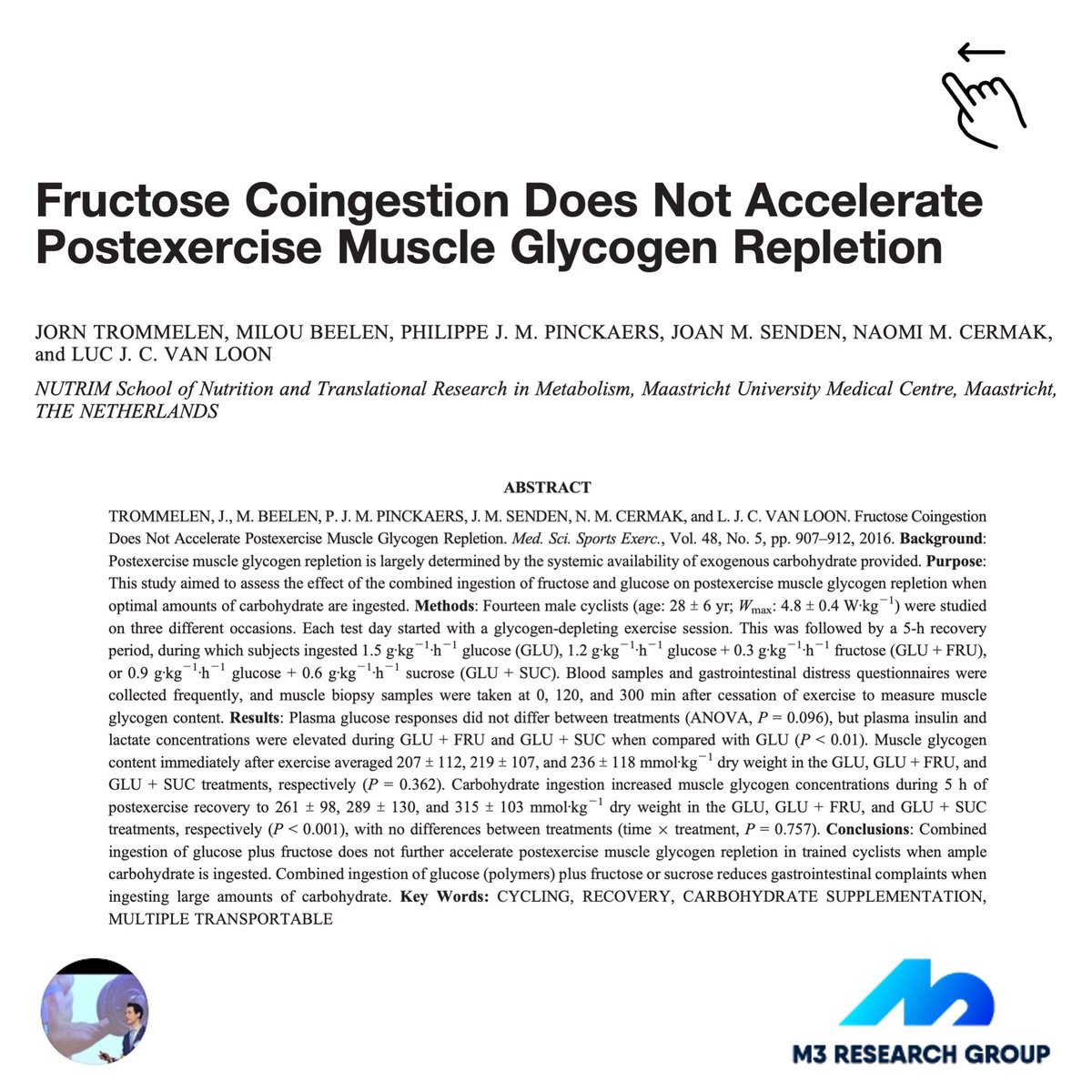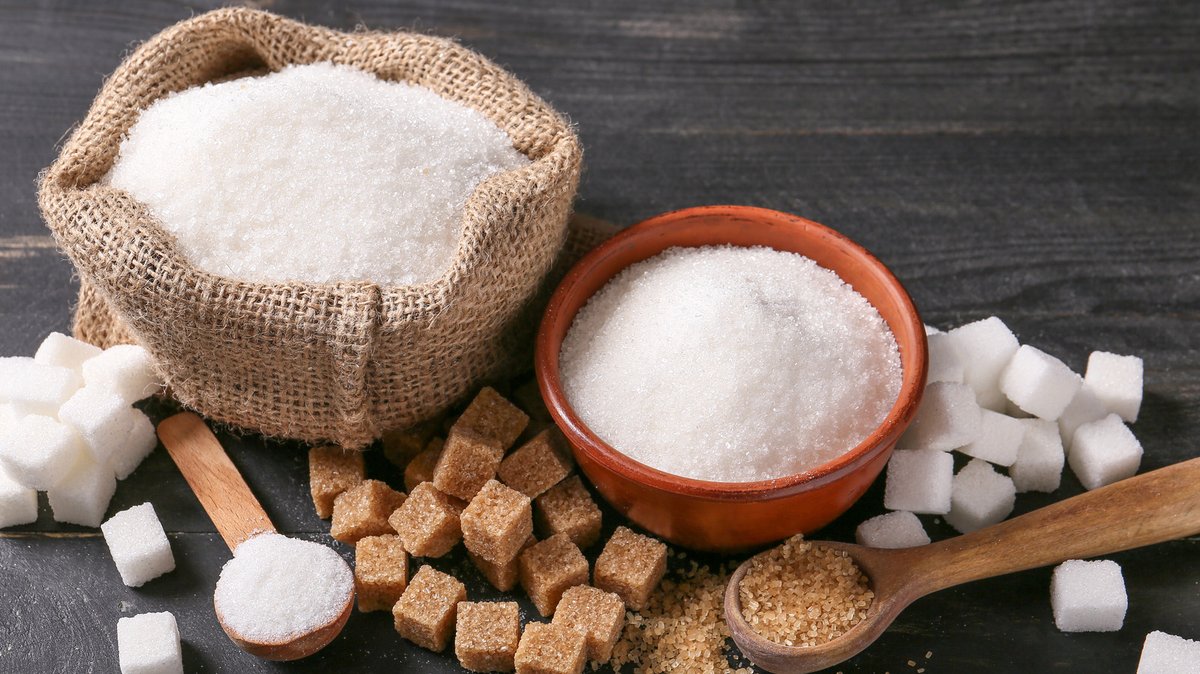
Does the order of drinking wine and beer matter for hangover severity?
A thread 🧵👇
#beer #wine #hangover
A thread 🧵👇
#beer #wine #hangover

It is well established that drinking too much alcohol will result in a hangover. It is commonly suggested that the hangover will be less if you stick to one type of alcoholic drink, rather than drinking different types of drinks.
2/
2/

In addition, there are several sayings such as: “Beer before wine and you’ll feel fine; wine before beer and you’ll feel queer”. This suggests that the order of drinks may impact the hangover.
3/
3/

This study investigated whether the order of drinking wine and beer affects the severity of hangover symptoms. Subjects were on average 24 years old, drank alcohol several times a week, and had hangovers varying from rarely to a few times per week.
4/
4/

In total, 4 different treatments were tested: 1) beer only, 2) wine only, 3) first beer, then wine, and 4) first wine, then beer. Subjects had to drink their beverages until they reached a target breath alcohol concentration of 0.11% (~10 glasses of alcohol).
5/
5/
The groups with two different drinks switched when half this value was reached. The severity of their hangovers was rated using an acute hangover scale.
6/
6/
The hangover severity was not different between any of the groups. These data suggest that drinking wine and beer together will not result in a more severe hangover when compared to drinking the same amount of alcohol as just one of them.
7/
7/
However, this does not mean that all alcoholic beverages will have the same impact. Other alcoholic drinks may cause more dehydration and/or have other ingredients that may also impact hangover severity.
8/
8/

In conclusion, drinking beer and wine together does not affect hangover severity the next day.
Study:
ncbi.nlm.nih.gov/pubmed/30753321
9/9
Did you find this useful? Please help promote the first tweet of the thread:
Study:
ncbi.nlm.nih.gov/pubmed/30753321
9/9
Did you find this useful? Please help promote the first tweet of the thread:
https://twitter.com/JornTrommelen/status/1593639393541095425?s=20&t=CYOxib6bEQYb17LeHj81rA
• • •
Missing some Tweet in this thread? You can try to
force a refresh





















